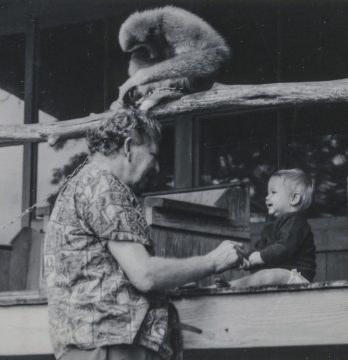Tim Parks in Aeon:
 There are times when a dilemma that seems like agony in adolescence can not only provide the basis for a prestigious career, but also lead to a profound shift in the world of ideas. Thus it is that the predicament faced by the 17-year-old Gregory Bateson, following his brother’s suicide in 1922, turns out to be extremely relevant to us today, for it eventually led him to revolutionise the study of anthropology, bring communication theory to psychoanalysis (thus undermining the Freudian model), invent the concept of the ‘double bind’, and make one of the first coherent, scientifically and philosophically argued pleas for a holistic approach to the world’s environmental crisis. Seeking to condense Bateson’s work into one core concept, one can say that, above all, he proposed a paradigm shift in the way we think of ourselves as purposeful, decision-making actors in the world.
There are times when a dilemma that seems like agony in adolescence can not only provide the basis for a prestigious career, but also lead to a profound shift in the world of ideas. Thus it is that the predicament faced by the 17-year-old Gregory Bateson, following his brother’s suicide in 1922, turns out to be extremely relevant to us today, for it eventually led him to revolutionise the study of anthropology, bring communication theory to psychoanalysis (thus undermining the Freudian model), invent the concept of the ‘double bind’, and make one of the first coherent, scientifically and philosophically argued pleas for a holistic approach to the world’s environmental crisis. Seeking to condense Bateson’s work into one core concept, one can say that, above all, he proposed a paradigm shift in the way we think of ourselves as purposeful, decision-making actors in the world.
Born in 1904, Gregory was named after Gregor Mendel, the monk and botanist who opened the way to an understanding of how hereditary traits are passed on from one generation to the next. Gregory’s father, William Bateson, had championed Mendel’s theories in England, involving himself in years of violent polemics as to the nature of the evolutionary process, and coining the word ‘genetics’ in the process.
More here.
